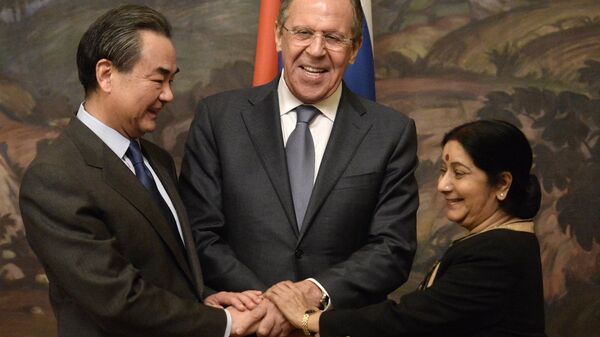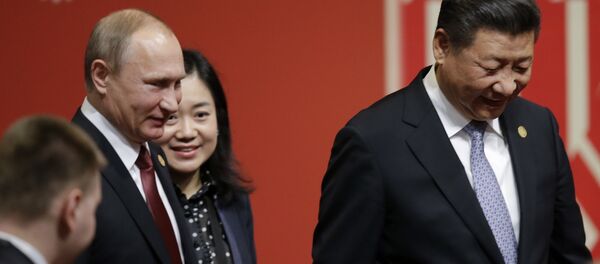Prime Minister Narendra Modi is scheduled to visit St. Petersburg on June 1 to attend an international economic forum and the annual summit with President Vladimir Putin. The annual summit meet will be the 18th between India and Russia. Both countries are also celebrating the 70th anniversary of long, uninterrupted, and all-weather diplomatic ties.
Last week, India hosted Russian Trade and Industry Minister Denis Manturov and announced a number of initiatives and partnership ventures to give a push to USD $30 billion target by 2025 envisioned by PM Modi and President Putin.
The June summit meet, however, will be preceded by the One Belt, One Road (OBOR) summit convened by China in Beijing which President Putin is expected to attend. The OBOR, which India is not comfortable with, and Russia's recent overtures towards Pakistan have raised a few doubts among some foreign policy observers in India.
But there are others who reject these qualms, saying these realities cannot be ignored but at the same time, they say that these can't affect India-Russia ties which have stood the test of time.
The "asymmetry of power" between India and China in terms of economic resources and strategic heft needs to be factored in and New Delhi should weigh its limited options in dealing with Beijing, said Srinath Raghavan, senior fellow at the Center for Policy Research, New Delhi.
"The collapse of the Trans-Pacific Partnership and the rolling out of the OBOR initiative has already provided Beijing the perfect setting in which to pursue a more ambitious agenda of Asian connectivity and integration," he told Sputnik, adding that a more "constructive and smarter engagement" is required, including in OBOR.
In fact, Russia-India's North-South International Corridor can complement the OBOR in the long term and provide unprecedented connectivity and linkage with Eurasia benefiting all, Jagannath Panda, senior fellow at New Delhi-based Institute for Defense Studies and Analyses, told Sputnik earlier.




